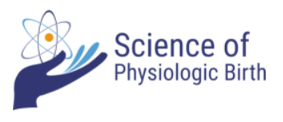Our vision is to develop an interdisciplinary research agenda among basic science, clinical, social, epidemiologic, and health services researchers that will catalyze research, training, and practice and policy aimed at promoting physiologic birth.
Interested in joining us? We welcome inquiries from faculty, early career researchers and learners who are conducting research related to the promotion of physiologic birth. We also welcome users of research, for example academic clinicians, and policy and decision-makers.
We offer collaboration and networking with an international and interdisciplinary group of physiologic birth researchers, the opportunity to present or attend innovative webinars, activities and networking for trainees, and a profile of your work on our web pages and newsletter. Email us at contact@scienceofbirth.ca.
July 2024
We challenged our trainees and early career researchers to tell us how they think that physiologic birth transforms society. Our winning submission is from Anne Hallet. Anne has an MSc in Midwifery. She is a member of the Midwifery Research and Education Unit, Hannover Medical School and is studying in the PhD Programme in Epidemiology at the Helmholtz Centre for Infection Research, Braunschweig-Hannover in Germany. Here is what Anne told us about physiologic birth:
Physiologic birth transforms society...
... when all members of society care about birth, even if they are not directly involved.
... when we recognize the transition to parenthood as a sensitive period that varies for each individual.
... when we view it within the broader context of sexual and reproductive health.
... when we address inequities in healthcare access and health outcomes, actively working to eliminate them.
... when midwives and allied health professionals are valued for their work in women’s and birthing people’s health.
... when we challenge and dismantle racist and sexist myths around pregnancy and birth.
... when we fight to end obstetric violence and openly discuss its structural causes and the roles we all play.
... when midwife-led care stays and becomes the norm for normal pregnancies worldwide.
... when we acknowledge that not only women give birth.
... when the working conditions of midwives and other health professionals are improved, ensuring they can stay on the job.
... when care work and parenting receive the same recognition and respect as other professions.
... when midwifery science continues contributing to a growing body of knowledge while staying connected to clinical practice.
... when we improve access to contraception and safe abortion so that more pregnancies are wanted.
... when not everyone gets the same maternity care, but the care they need.
... when more birth stories are shared and heard.
... when we continue to learn about birth and share our knowledge with others.
See our News section to review the runner-up submission. 



